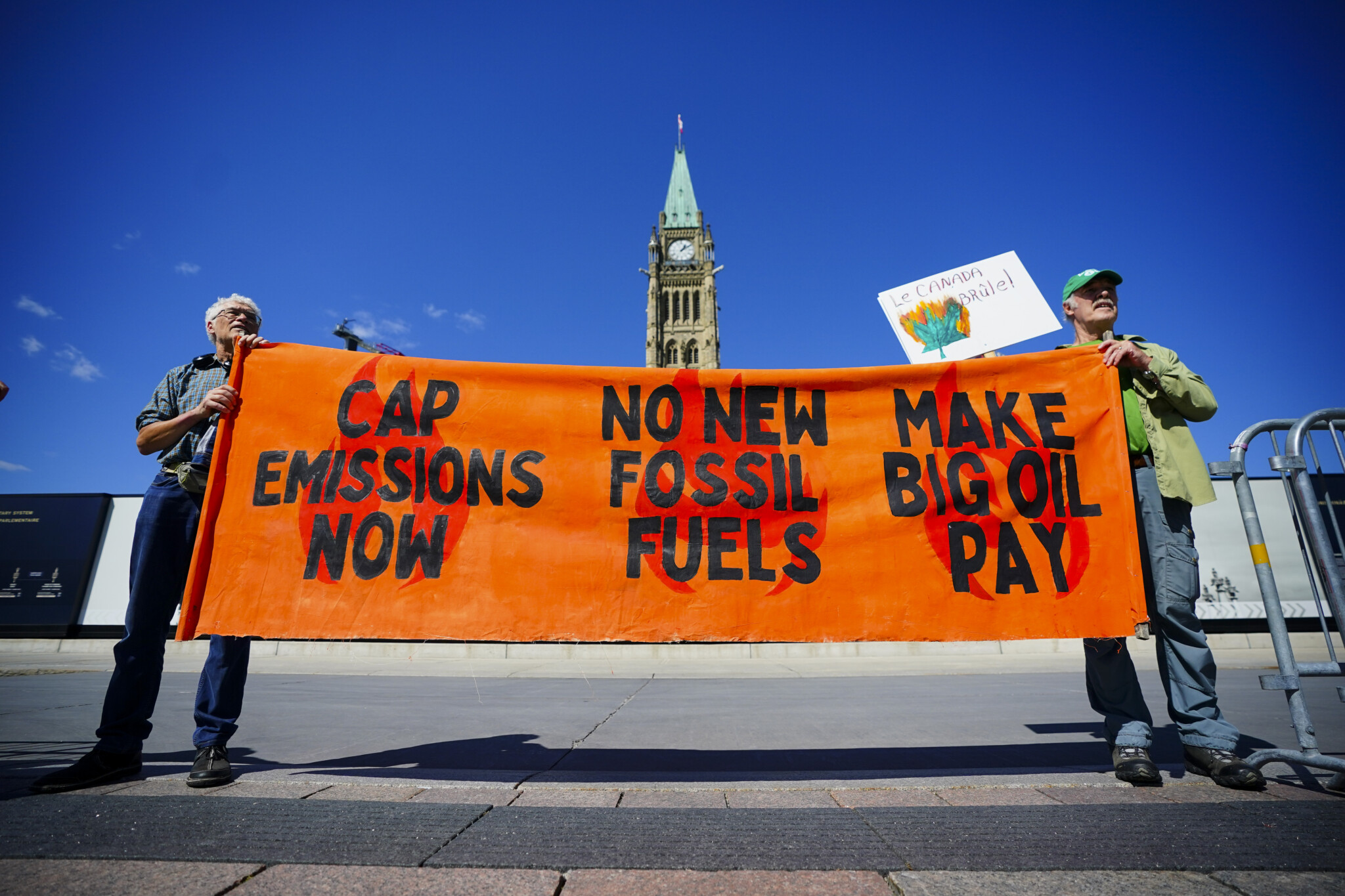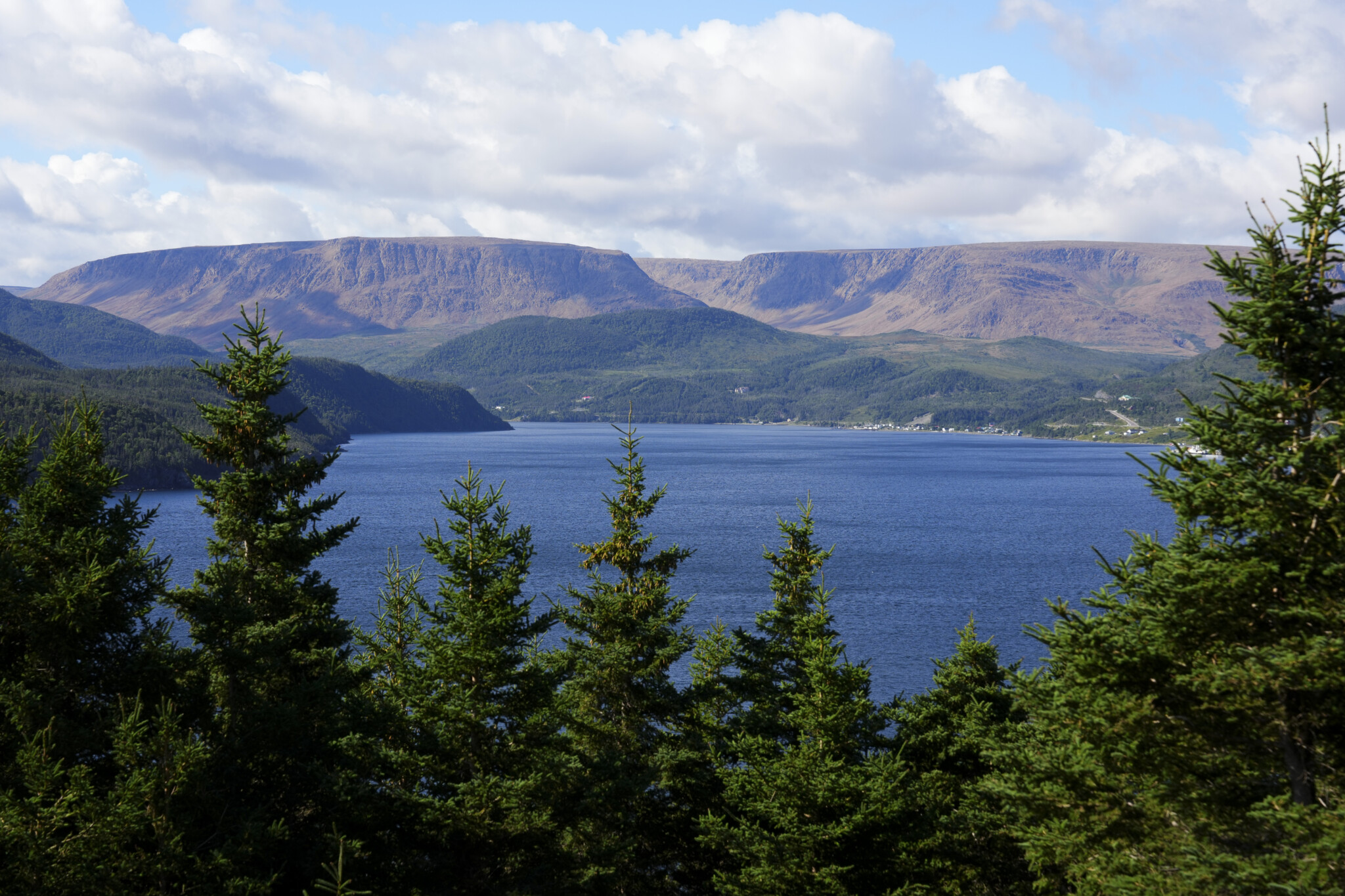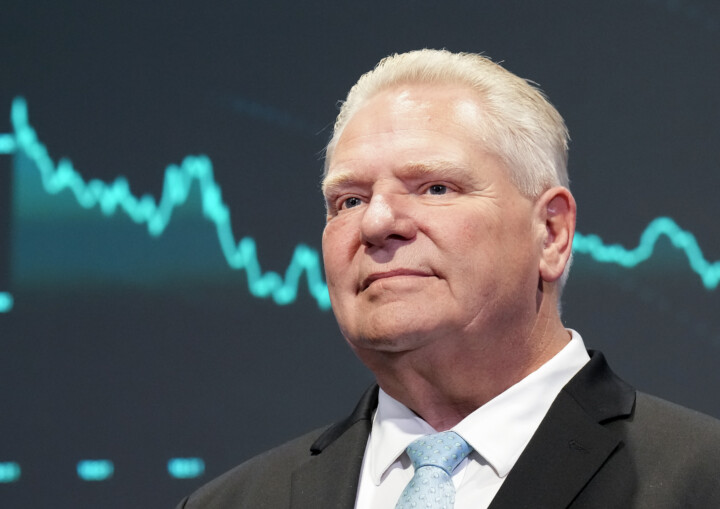
Canada has a major economic opportunity in the global low-carbon economy, if it gets its climate and energy policies right. Those policies should be informed by principles like leveraging the ingenuity of markets and free enterprise, limited government, and respect for provincial jurisdiction. Kicking off with The Hub’s own Sean Speer we are pleased to launch in partnership with Clean Prosperity a new sponsored series exploring the why, what, and how of conservative climate policy. Enjoy!
As I’ve written before, there’s something paradoxical at the heart of Canadian conservatism. It shares old-world conservatism’s instinct for habit and tradition. But it’s also marked by the new world’s preference for dynamism and progress.
These two parts of Canada’s conservative tradition sit in a state of unresolved tension. Prudence is required to judge when to elevate one over the other.
They don’t represent different coalitional factions per se. They’re ideas and impulses that run through individual conservatives themselves. Sir John A. Macdonald was both a traditionalist and a dynamist. He had certain Tory sensibilities but he was also a nation builder.
A non-conservative reader might at this stage point out the ostensible contradictions between a Burkean impulse for guardianship, prudence, and epistemological modesty on one hand and the Hamiltonian preference for dynamism, energy, and transformational change on the other.
There isn’t a simple rebuttal. Conservatism’s mix of induction and particularism means it’s more concerned with explaining its surrounding circumstances than constructing a neat and tidy worldview. American conservative writer Jonah Goldberg often distills conservatism as “comfort with contradiction.”
Yet if Canadian conservatives are susceptible to the criticism that their ideology can be at odds with itself, the two sides of their tradition can also be complementary. Climate change is one such an example.
This may surprise some readers. There’s a sense that conservatives are ambivalent and even averse to climate policy. But there’s a strong case that Canadian conservatism’s amalgam of ideas and impulses are actually perfect for formulating a response to climate change.
Think about it. Climate policy is by definition motivated by the goal of conserving the natural world. But it won’t happen by going backwards. We cannot return the natural environment to its pre-human state. Adam and Eve have already taken a bite out of the forbidden fruit.
The only solution to climate change is the application of dynamism and progress towards the goal of renewing the natural order. The alternative—what’s sometimes called “degrowth”—would have us reject dynamism and progress and instead seek to achieve our climate goals by accepting less economic activity, lower living standards, and even fewer humans. Greta Thunberg’s vision is bankrupt as a matter of moral philosophy and public policy.
Conservatives, by contrast, have a better appreciation of the interrelationship between humans and nature, preservation and progress, the present and the future. They understand how technological progress can support the natural order on behalf of future generations. They recognize in short that climate progress will be achieved through abundance, not scarcity.
Free-market economist James Pethokoukis has put it this way: “the answer [to climate change] is Schumpeter, not Malthus or Ludd.” He’s right of course. Schumpeterian creative destruction is the only means to reduce our burden on the planet without trading off human well-being.
Consider for instance the advent of carbon removal technology. This is a promising expression of capitalism, entrepreneurship, and innovation to address the industrial economy’s centuries-long production of carbon emissions. Today we could be on track to removing seven to nine billion tonnes of carbon dioxide from the atmosphere per year by 2050.
This singular example demonstrates both the extent to which businesses are working as fast as possible to produce climate solutions and that we still have a long way to go. There’s a key role for public policy to help boost these efforts. Canadian conservatives should be prepared to broadly support it.
Reaching the goal of net-zero emissions by the middle of the century or so will require that governments and markets play their respective roles to lower emissions as much as possible and then rely on emerging technologies to get us across the finish line. It must be emphasized that this is no socialist scheme. Market forces are now driving emissions reductions faster than top-down technocrats could ever aspire.
It must also be said that this doesn’t require a consumer carbon tax. The Canadian Climate Institute has estimated that the consumer carbon tax will be responsible for just eight to nine percent of emissions reductions between now and 2030. There’s a wide range of public policies that can offset and replace the carbon tax and still support promising technologies like carbon removal.
Technology is indeed key. Pro-growth economist Eli Dourado has even gone as far as to describe climate change as “fundamentally a technology problem.” The Canadian Climate Institute frames the challenge as one of “safe bets” and “wild cards.” The role of public policy will necessarily differ between them.

People participate in a climate protest on Parliament Hill in Ottawa on Friday, Sept. 15, 2023. Sean Kilpatrick/The Canadian Press.
For safe bets such as electric vehicles or electric heat pumps, public policy can help on the margins with the adoption and scale of increasingly proven technologies. For wild cards such as direct air capture or hydrogen, the role for government policy will be greater, including public investment in research and development, de-risking private investment, and even acting as an early customer.
As important, however, is that conservatism contributes to an alternative narrative to the Thunbergian notion of a zero-sum relationship between humans and nature. The overarching message cannot be to rid the natural world of its human imprint. We have to instead put human ingenuity at the centre of a conservative climate agenda.
If one thinks about it, what we’re implicitly proposing over the coming decades is to carry out a modern industrial revolution. We don’t tend to talk about it in those terms. But how else does one describe going from just over 700 megatonnes of greenhouse gas emissions in 2022 to net-zero emissions by 2050?
The net-zero vision involves reimagining the industrial economy, including energy systems, such that we can preserve and continue the historic gains that we’ve made in global living standards over the past several decades while minimizing the harm to the planet. It must be understood as audacious and exciting. It reflects a positive-sum vision. It’s an abundance agenda.
If this vision ultimately materializes, if we’re able to restructure the economy along more sustainable lines, the accomplishment cannot be overstated. Reconciling economic progress and environmental stewardship will be what the 21st-century is fundamentally about. This is the story that future historians will teach about our era.
For conservatives who see themselves in a Burkean partnership across generations, that’s a compelling vision. It draws on both their instinct for posterity and their preference for progress. It’s a reminder that intergenerational guardianship must account for our natural endowments.
This isn’t the only advantage that conservatives have when it comes to climate policy either. There’s also our attentiveness to rural and peripheral sensibilities, preference for market solutions and skepticism of government overreach, credibility with the country’s energy sector, and support for cutting red tape and “getting big things done.”
The key point here is that Canadian conservatives shouldn’t shy away from climate policy. Our philosophical tradition actually gives us a valuable perspective to contribute. We’re not going to meet our climate targets by stagnating our way to them. That’s a recipe for economic decline and social strife.
An abundance agenda rooted in technological progress is the right path out of the climate crisis for Canada. Conservatives can lead the way.
This article is part of an ongoing series on conservative climate policy sponsored by Clean Prosperity. Click here to learn more.








